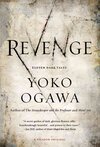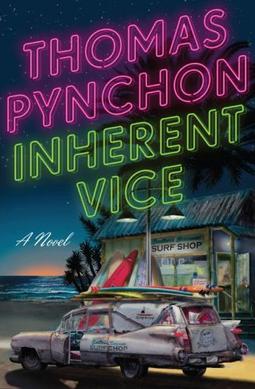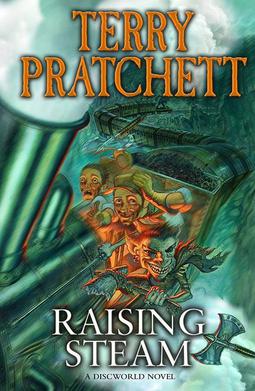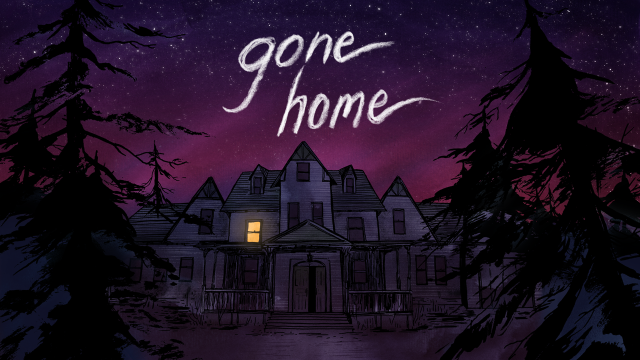Games telling stories is nothing new.
Within the ever-burgeoning indie scene though, there have been a spate of studios pushing the boundaries of how stories can be told within this medium. The two games I've played most recently -- The Fullbright Company's highly-detailed exploration experience Gone Home, and (what is available of) Cardboard Computer's intriguing, episodic magical realist adventure Kentucky Route Zero -- are two games that I've found particularly interesting in how - in very different ways - they pull the focus away from traditional game elements like strategy or reflex-testing and push it more totally towards narrative; crucially, without compromising the interactivity that separates the medium of games from film and (most of) literature.
Even though, as I said, games telling stories is nothing new; and though there are undoubtedly plenty of great games with brilliantly-executed narratives (to name a few, Grim Fandango, Bioshock Infinite, and the - for my money, unsurpassed - Deus Ex), the medium can run into unfortunate issues when trying to balance a well-crafted story with the crucial elements of interactivity offered uniquely by games. Especially if said game has a story that doesn't lend itself so much to gaming's traditional propensity for frequent violence.
I think the best example of this is Rockstar Games' 2011 game, L.A. Noire. An overall very good and ambitious game, with a complex and engrossing story and a highly commendable setting in the form of its beautiful recreation of 1950s LA; my only real problem with the game was with the unfortunate flaws in the gameplay. The interrogation mechanic was an admirable experiment, but suffered from overuse; and the more traditional gameplay styles on show -- shooting sections, car chases, quick time events, arbitrary collectibles, etc. -- sometimes felt kind of shoe-horned in for the purposes of adding some interactivity, in a way that limited the sense of immersion that is crucial to any story.
How, then, do my two examples deal with this problem? Especially given that, I should note, neither of them feature violence, puzzles, competition, or strategic elements to propel their stories.
What Gone Home does is take the attention to detail and focus on independent exploration that games like Deus Ex, Thief and System Shock --- (fun fact 1: Fullbright is formed from members of the Bioshock 2 team, making them sort of Looking Glass alumni by proxy; which is, fun fact 2: partly why my brain is hardwired to like their game so much) --- used to flesh out story and character details, and makes this the primary backbone of its narrative structure.
As Katie Greenbriar having returned from travelling around Europe, you piece together the whole story through what artefacts you find in the house -- letters, journals, books, photographs, amongst many others. This mechanic, though highly simple, contributes a hell of a lot to the game.
Relying on this mechanic -- in a way, a sort of reincorporation of gothic 'found' narratives for contemporary consumerist societies -- rather than on exposition or cut-scenes, allows the player to be told a linear story in a non-linear fashion without it in any way messing up the game (contrasting with my experience of the very open Fallout 3, where I travelled to Rivet City too early and ended up missing out an entire mission path); making this a truly and commendably interactive narrative, where there's the literal interactivity of playing the game merges with that of piecing together the story in your mind from the various objects and clues you find in whatever order you choose to find them.
It goes without saying as well that a major share of the game's appeal lies also within the most traditional aspect of it: the content of the story itself. I don't want to spoil it (this is really the sort of thing that's most rewarding to go into relatively blind), but I want to praise the Fullbright Company for their telling of an emotionally resonant and touchingly personal story, and in a way that frequently and intelligently plays on and with our expectations of what stories the medium of video games is capable of telling.
This experimental shifting around of boundaries where storytelling in games is concerned is one of few things that Kentucky Route Zero has in common with Gone Home.
At first glimpse, the game behind Cardboard Computer's dreamy story, which revolves around a truck driver named Conway's journey to make a delivery through an America that echoes the worlds created by the likes of David Lynch, Haruki Murakami and Franz Kafka in its juxtaposition of the highly surreal and the highly mundane, looks more traditional than Gone Home. In appearance and general gameplay, it strongly resembles a point-and-click adventure game; and in how its story is relayed to the player, there are clear cues taken from one of gaming's oldest genres: interactive fiction (or the 'text adventure').
As you play the game though, it becomes apparent that Cardboard Computer are dedicated to experimenting with and reshaping how video games can tell stories.
This will first become apparent in how decision-making works in the game; differing as it does from what we see in many games - whether it be the 'single-handedly-build-an-orphanage-from-twigs-and-your-own-hair-or-kick-a-sentient-being's-head-in-and-then-nuke-everything-in-the-universe'-style big morality of, for example,
Mass Effect, or even the more nuanced, pessimistic approach of something like
Deus Ex. The decisions the player makes in this game (what Conway might say to his dog about the current situation, for example, or whether to listen to a tape or have a conversation with the person who is playing the tape) are often curiously mundane, or even humbling; but they serve strangely (yet very effectively) to really increase your personal engagement within the interactive world. As
KR0's creators said themselves
in this highly-recommended feature on the game on Polygon.com, "[it results in] a more human experience, a more empathetic experience. Or also more kind of mysterious experience where they don't feel like they're in control. It's not a power-trip fantasy".
As you progress through the game, Cardboard Computer subtly introduce more and more formally unorthodox elements such as the very minimalist moments when the game presents the player with narrative vignettes reliant basically only on an evocative duo of prose and atmospheric, seemingly implemented with almost surgical care and precision, sound. Most impressive of these though is the playing with narrative perspective; something that first makes an appearance when you find yourself assuming control over the character of Shannon, making specifically the decision as to how she reacts to meeting Conway for the first time. This escalates as the game progresses and has reached its (thus far) apex with my personal favourite scene of the game: a scene that I won't spoil other than to say that it takes place in a characteristically surreal museum and is comparable in style to literary modernism.
It remains to be seen how
Kentucky Route Zero is going to continue with its innovations in future episodes, but the recent 'interlude' piece -
'The Entertainment' - and some claims in
this recent progress statement from the game's creators suggest that they don't plan on sticking to a formula.
*
Both of these games have very good implications for the future of games as a medium for interactive storytelling as a whole; the independent scene, helped significantly by the increased availability of sophisticated production and distribution tools, is forever flourishing as a site for creativity and experimentation. There are tons of indie studios like Cardboard Computer and the Fullbright Company excitingly subverting and playing with gaming's traditional tropes and characteristics (for more of that, incidentally, see
here), as well as those with ambitions geared more towards the unfamiliar and the avant-garde.
It'll be doubly interesting, too, to see how the mass of creativity within the independent scene will exert its influence on the bigger developers and the bigger games.
--- --- ---
Some further reading:
'Gaming and Fiction: Telling the Story to a Whole New Audience'. Lucy Prebble, 'The Guardian'
'On videogame debate, misunderstandings and the importance of keeping an open mind'. Tadhg Kelly, 'Edge'
'From Bioshock Infinite to Gone Home: The Story of the Fullbright Company'. 'Edge'
'Breathe In The Road: Cardboard Computer and Kentucky Route Zero'. Charlie Hall, 'Polygon'
'The Making Of: Kentucky Route Zero'. 'Edge'
---
Gone Home is available for £14.99 from Steam
Kentucky Route Zero's season pass is available for £18.99 from Steam






